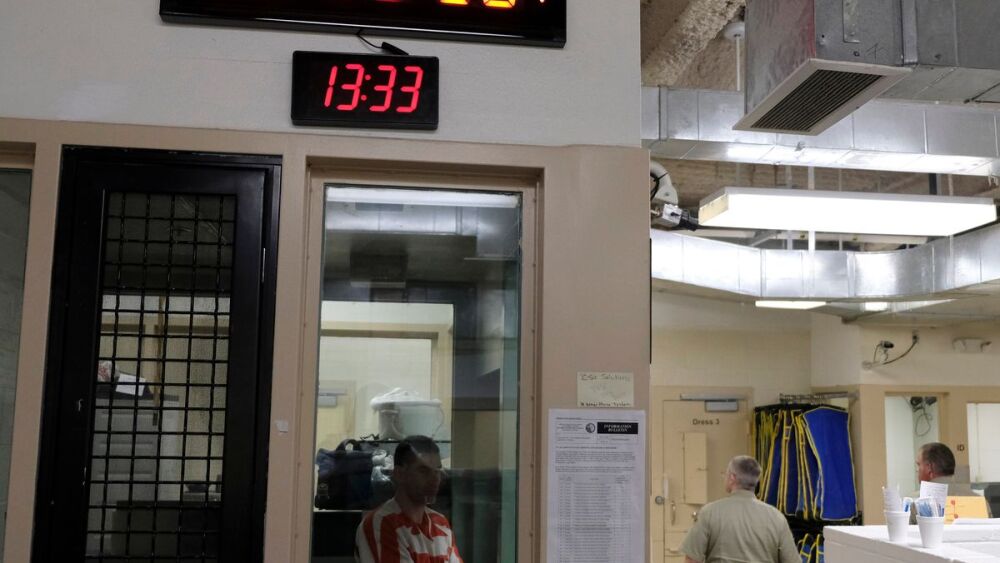You come into briefing and the sergeant is handing out assignments. You have been running housing units for the past three days and your patience meter is a little low.
The sergeant points at you and says, “Take Control.”
This will be a break from the trenches. Someone jabs you and asks if you’re on light duty. You grab your backpack, loosen your keepers and head to Control to start your shift.
Respond to calls wisely, even when you’re busy
You get your briefing and settle in, getting ready to respond to calls for movement from housing deputies, nurses, lawyers in the lobby and the rest of your team. There are four arrestees pacing around in safety cells, four sleeping in the sobering cell and countless arrestees in holding cells, waiting to be processed from a busy Friday night.
It doesn’t take long for the first call to come in, an arrestee in a crowded holding cell. You listen to the list of demands and the familiar responses crop up in your mind as you take a look at the monitor to make sure the guy is not in need of life-saving measures.
“Hey, I’ve been here for two hours already, why can’t you guys tell me what’s going on?” Two hours! You’re lucky. I don’t even know your name. “I want to call my lawyer, but no one is answering.” It’s Saturday, your lawyer is fishing. “When am I going to court?” Same schedule. Has been for decades now. “Why can’t I go now?” First come, first served. Maybe less drinking in public next time. “I need some toilet paper in here!” I haven’t perfected teleportation, my friend. Can’t help you there.
You could verbalize any of the above responses and maybe get a laugh out of the other arrestees in the holding cell. You’ll get the guy on the other side of the intercom off your back. He may not bug you again and you can continue with your duties. The arrestees in that holding cell will get the message you’re not there to help them with their trivial needs. You will have set a sarcastic tone in that cell, which may carry over from the arrestees to the next staff member who contacts them.
The guy in holding will leave you alone, but his concerns, being very real to him at that moment, will keep him upset and his anger will fester. Eventually, he may be the guy in the holding cell who tears the phone off the wall or punches another arrestee. It won’t be your report.
Booking staff may have to tackle the angry arrestee and do what they can to safely move him to a padded cell. You won’t have to write the crime report and testify in court about the broken phone, or the guy who got punched and taken to the hospital. You probably won’t have to be on the transport detail to the hospital. Your partners will handle everything. You’re just opening doors and answering calls.
Make time to help your team
Control officers are often very busy focusing on keeping inmates in the right places within a jail or a prison, keeping staff safely on the move, and generally keeping an overall eye on the security of the facility. A control officer doesn’t normally have much time to spare for chats. But we get little breaks in the action periodically. What if during those breaks we took the time to address a concern, or commiserate with an arrestee that it’s just not fair those lawyers don’t work on the weekends?
When you run a control center, you have regular contact with many inmates in a large area of your facility, sometimes the entire facility. You often broadcast announcements to entire housing units. In your regular contacts with other staff members and with inmates, you have the ability to help determine the tone for that shift.
When responding to inmates who initiate your intercoms, you can blow them off for non-emergency requests and agitate the inmates with sarcastic remarks, or you can choose to use calming responses, a caring tone and just a little bit of empathetic feedback. Remember, your response will not affect you much, but what you say and do when you are assigned to Control will affect your partners who are in contact with inmates all shift.
Small efforts pay big returns
When an inmate calls you from her cell, do you answer professionally, or do you say, “What do you want?” When you announce a lockdown in a housing unit, are you firm in your tone, or are you barking angry orders? If you know that inmate Smith is calling, do you ever ask, “What’s going on, Mr. Smith?” All these little details add up to setting a tone in your facility that effects behavior in inmates. Since the control officer is communicating with many inmates regularly, these details end up effecting the general safety of your facility.
The next time a mental health patient calls you from his ad/seg cell and asks you what day it is, tell him what day it is. Tell him you’re going to try to check up on him later, and then check up on him later. This will take all of 15 seconds per contact. If you have other calls coming in, tell him you have to go, but say, “Have a good day, man.” You may reduce his stress level a little with some brief, but much needed, positive human contact. Just as important, you may reduce the possibility this inmate will go to his window and yell obscenities or bang on the window four hours, irritating other inmates and generally making your floor officer’s job harder.
If an agitated arrestee contacts you from a holding cell with demands and questions, try to address some of his needs, and if you can’t address the questions and demands, take the extra 20 seconds to let him know why you can’t. Do this with empathy, even if he is angry and spiteful. Your response may or may not de-escalate the arrestee. However, the other arrestees in the holding cell with him will hear you.
Choose to set a positive tone from Control
When you speak positively with an inmate in a group setting, remember you are broadcasting a level of care other inmates will hear and you may reduce some of their anxiety, even when you are not speaking with them directly. When you rise above the anger and spite directed at you and you respond with professional calm, you are taking away the agitated inmate’s reasons (however unreasonable) to intensify his behavior.
Imagine being the booking deputy who checks up on a cell full of arrestees after the arrestees have had positive contact with the control officer. The arrestees would be slightly less edgy because the tone of positive staff contact has already been set and can easily translate from one staff member to another. Control officers can easily create that positive tone with very little effort by just being mindful of how they speak when answering calls all shift.













